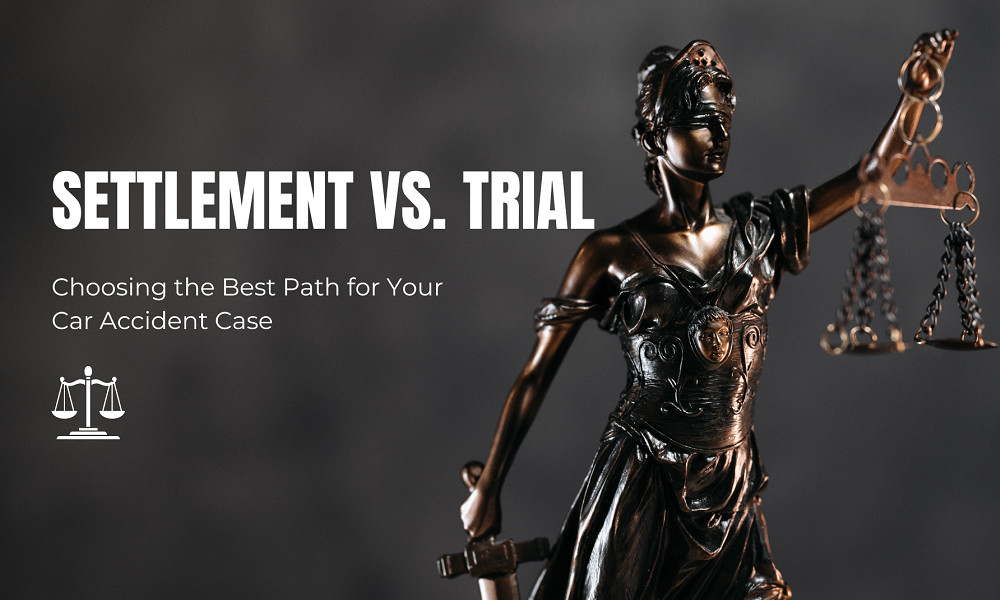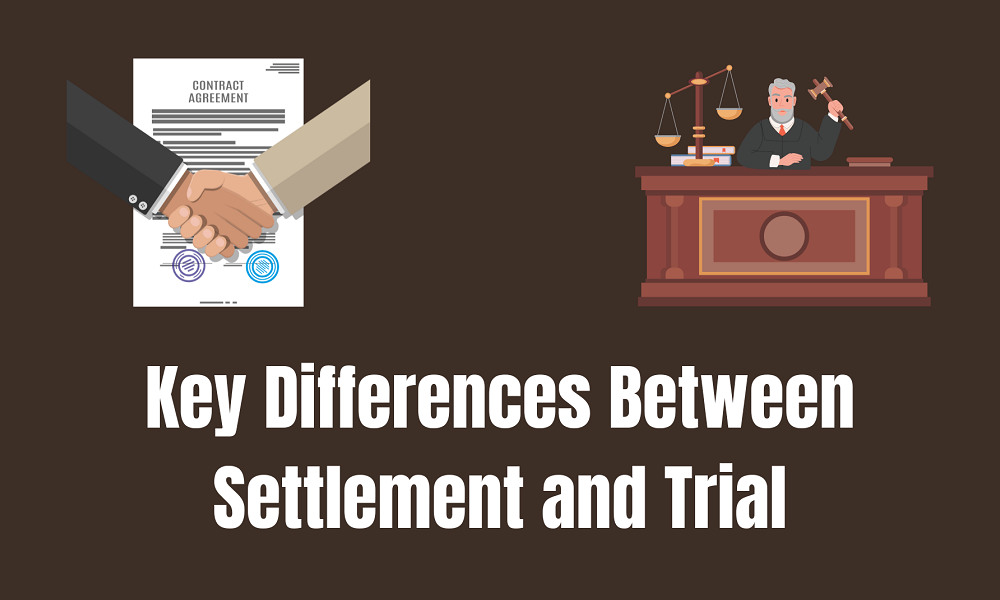Reviews
Settlement vs. Trial: Choosing the Best Path for Your Car Accident Case

After a car accident, you’ll have to make a lot of difficult choices about how to proceed. Deciding to settle out of court or take your case to trial is one of the major decisions.
If you had an accident in Massachusetts, a Boston car accident lawyer will try to achieve the necessary compensation without going to court but might suggest escalating the issue in some cases. Each option offers its own set of benefits and drawbacks, and understanding these differences can guide you toward making the best decision for your case.
The Settlement Process
Settlements are common in car accident cases. This process involves negotiating with the insurance company or the other party to agree on compensation without going to court. Settlements are often preferred for several reasons:
- Time Efficiency: Settling a case is usually much faster than going to trial. Trials can take months or even years, while settlements can often be reached in a matter of weeks or months.
- Cost Savings: Legal fees and court costs can accumulate quickly. By settling, you can avoid many of these expenses, leading to more money in your pocket.
- Certainty and Control: When you settle, you have more control over the outcome. You agree to a specific amount of compensation, avoiding the unpredictability of a jury’s decision.
- Privacy: Settlements are typically private, whereas trials are public. This means the details of your accident and injuries remain confidential.
The Trial Process
While settling can be advantageous, there are situations in which going to trial might be the better option, and here’s why:
- Potential for Higher Compensation: Juries can award higher amounts than what might be offered in a settlement. If your case involves severe injuries or significant disputes over liability, a trial might result in better compensation.
- Legal Precedent: Sometimes, going to court can set a legal precedent that can benefit others in similar situations.
- Fairness and Justice: If the other party is not willing to offer a fair settlement, a trial can ensure that justice is served. A jury of your peers can provide an impartial judgment based on the evidence.
- Public Record: Trials create a public record, which may be advantageous if you want the facts of the case to be known publicly.

Key Differences Between Settlement and Trial
To better understand the differences between these two paths, consider the following table:
| Aspect | Settlement | Trial |
| Timeframe | Usually weeks to months | Often months to years |
| Cost | Lower legal fees and court costs | Higher legal fees and court costs |
| Outcome Control | Parties have control over the results | A jury or judge determines the result |
| Compensation | Typically lower, but certain | Potentially higher, but uncertain |
| Privacy | Confidential | Public record |
| Emotional Impact | Generally less stressful | Might be emotionally taxing |
| Legal Precedent | No legal precedent | Can set a legal precedent |
| Flexibility | More flexible terms | Rigid, dictated by legal proceedings |
Factors to Consider
When deciding between settlement and trial, several factors should be considered:
- Severity of Injuries: Severe injuries often necessitate higher compensation. If a fair settlement cannot be achieved, a trial might be necessary.
- Liability: Clear liability cases are more likely to settle. If liability is disputed, a trial might be needed to resolve the issue.
- Insurance Company’s Approach: Some insurance companies prefer to settle quickly, while others are more willing to go the complicated way. Understanding their strategy can influence your decision.
- Legal Representation: Your attorney’s experience and advice are crucial. An experienced car accident attorney can provide insights into whether a settlement or trial is more advantageous in your specific case.
- Personal Circumstances: Consider your personal situation, including your financial needs, emotional state, and the time you can dedicate to the case.
Advantages and Disadvantages
| Settlement | Trial | |
| Advantages | • Speed: Faster resolution can help cover immediate medical expenses and other costs. • Cost: Lower expenses compared to a protracted trial. • Stress: Avoids the stress and uncertainty of a courtroom battle. • Privacy: Keeps your personal information and case details confidential. | • Higher Compensation: Potential for a larger award from a jury. • Justice: Ensures the other party is held accountable in a public forum. • Legal Precedent: Can help establish laws that benefit others in similar situations. |
| Disadvantages | • Lower Compensation: You might receive less money than what could be awarded by a jury. • No Legal Precedent: Does not contribute to legal standards that might help others. | • Time: Takes significantly longer, which can delay compensation. • Cost: Higher legal fees and court costs. • Stress: Can be emotionally draining, with no guarantee of a favorable outcome. |
Conclusion
The choice between settling or going to trial in a car accident case is a complex decision that requires careful consideration of various factors. While settlements offer speed, cost savings, and certainty, trials can provide higher compensation and a sense of justice.
Consulting with an experienced car accident attorney can help you weigh these options and choose the best path for your specific situation. Call 617-444-4444 today to get assistance from professional lawyers at Michael Kelly Injury Lawyers.

-

 US News1 week ago
US News1 week agoMedical helicopter crashes onto highway in Sacramento, California
-

 Entertainment1 week ago
Entertainment1 week agoReggaeton artist Zion hospitalized after ATV accident in Puerto Rico
-

 World6 days ago
World6 days agoGunmen open fire at concert in Peru, injuring members of popular band
-

 World1 week ago
World1 week agoTropical system likely to strengthen as it moves toward the Caribbean
-

 US News1 week ago
US News1 week agoJune tornado in North Dakota upgraded to EF5; first in U.S. since 2013
-

 Legal1 week ago
Legal1 week ago2 deputies wounded in Louisiana courthouse shooting
-

 Legal1 week ago
Legal1 week agoTeen arrested after stepfather found decapitated inside NYC home
-

 World6 days ago
World6 days ago3 scientists win Nobel Prize in Chemistry for metal–organic frameworks




